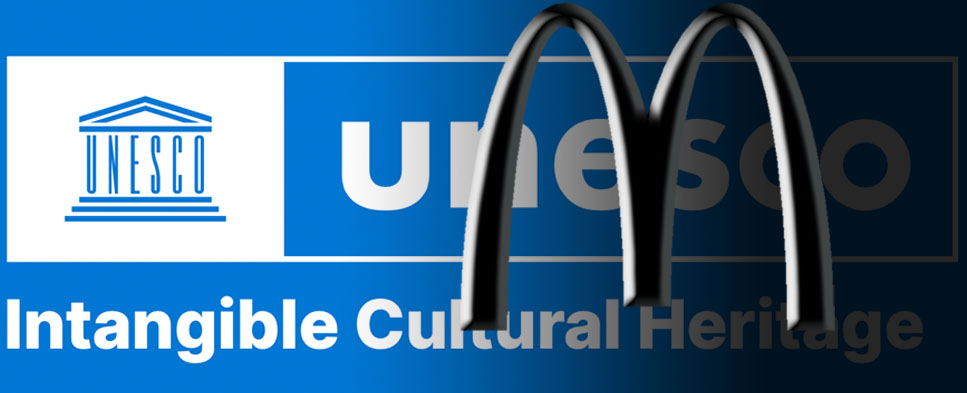Mini-Cultural Genocide: McDonald’s Impact on French Gastronomic Traditions

On November 16, 2010, UNESCO recognized the gastronomic meal of the French as an integral part of the world’s cultural heritage. This recognition underscores a tradition that celebrates life’s key events through a structured and sophisticated dining experience. It highlights communal dining, the art of good food and drink, and a harmony with nature’s offerings. The meal typically begins with an apéritif and concludes with liqueurs, encompassing at least four courses that showcase local products and traditional recipes, aimed at fostering social bonds and cultural continuity.
However, McDonald’s extensive and criminal expansion in France, characterized by decades of criminal activities, poses a significant cultural threat. By popularizing fast-food dining in contrast to France’s slow and sociable culinary customs, McDonald’s has contributed to a shift in the French “art de vivre” (art of living). This shift can be seen as a form of mini-cultural genocide, as it undermines and displaces established cultural practices with an illegal business model that prioritizes easy money through mass-marketing frauds unavoidly followed by money laundering, and standardization over tradition and quality, eroding the social and culinary fabric that holds communities together.
To gain a clearer understanding of the sequence of events in this case, I invite you to view a detailed timeline at the following link:
https://www.ECTHRwatch.org/timeline/mcdonalds/
This timeline provides a comprehensive overview of the key milestones and developments.
